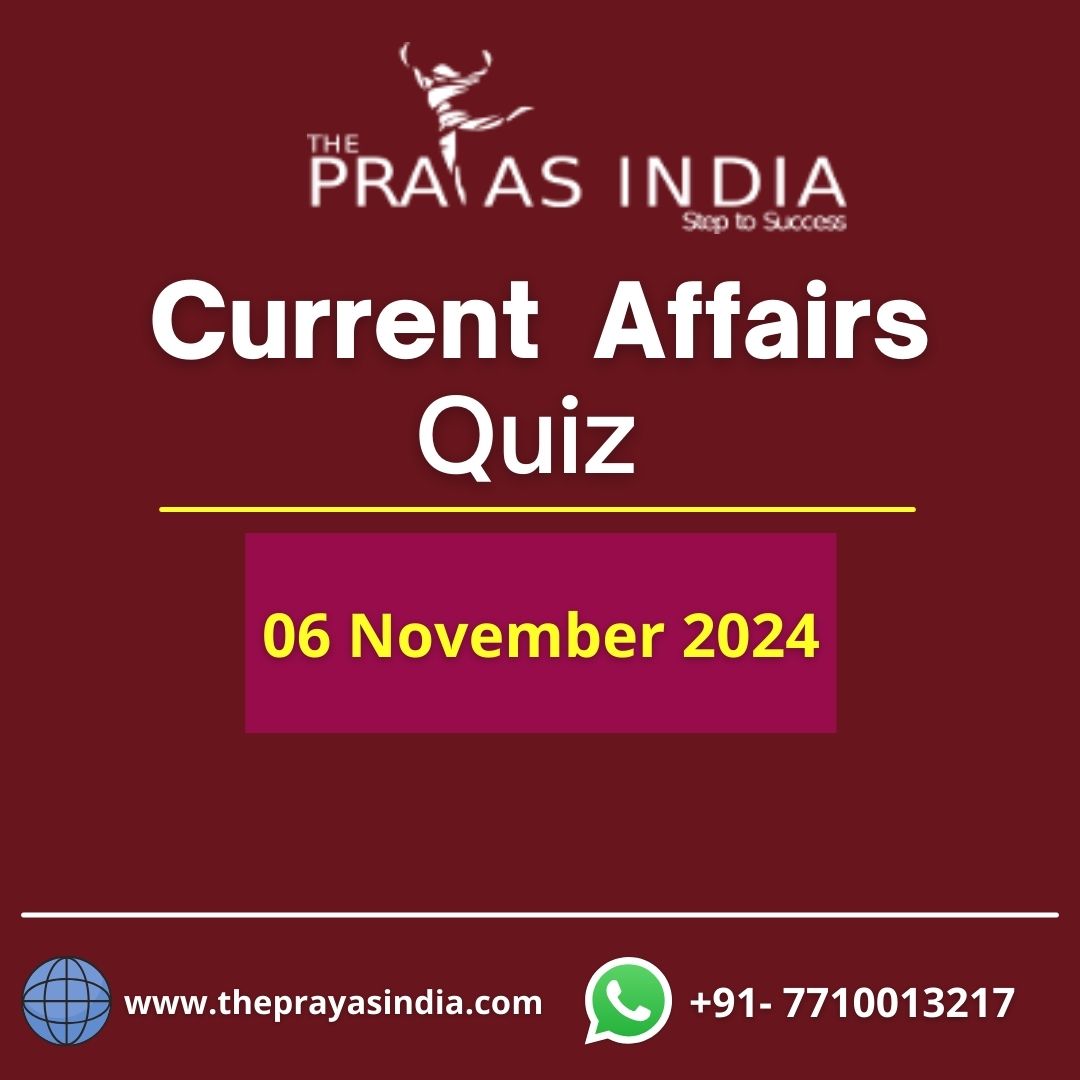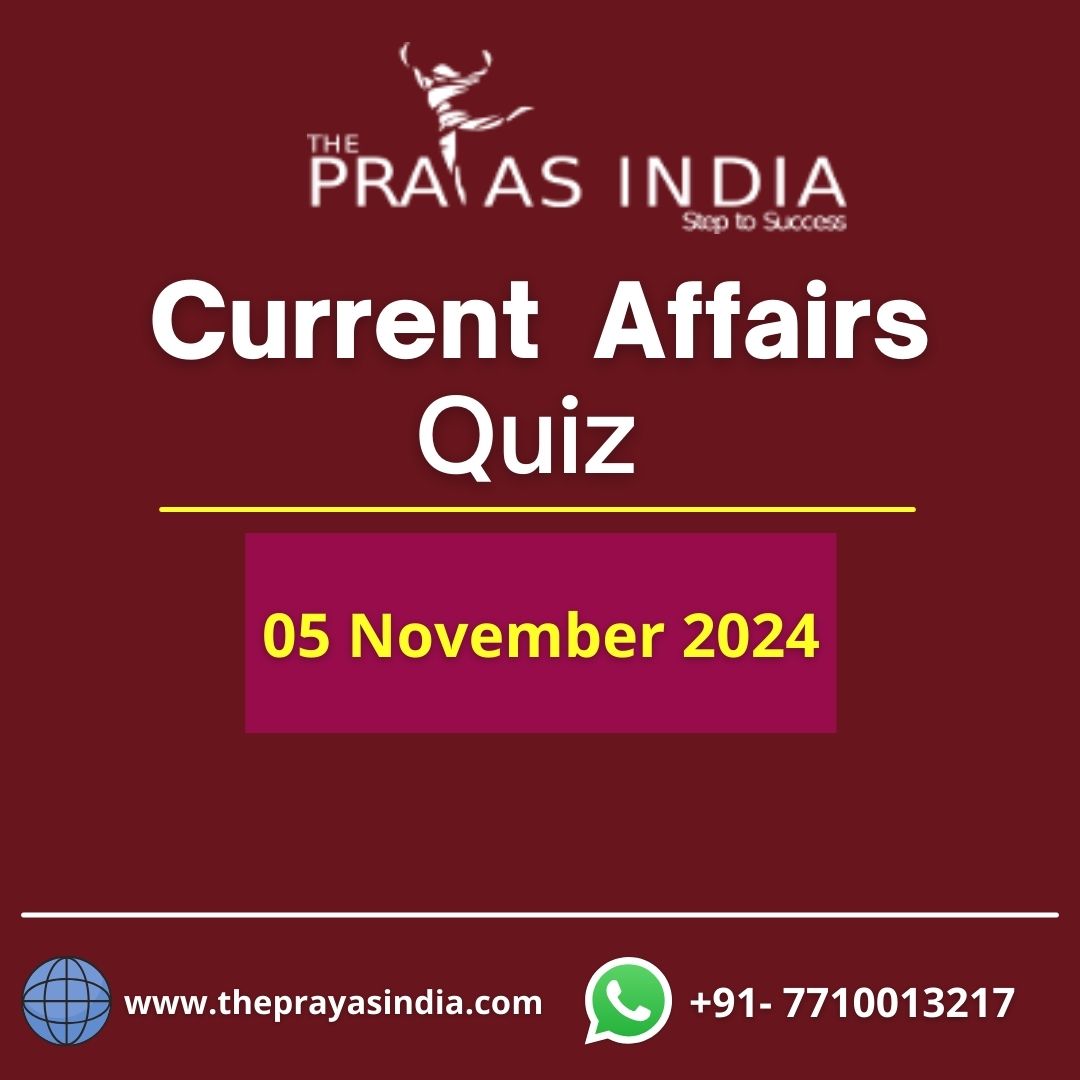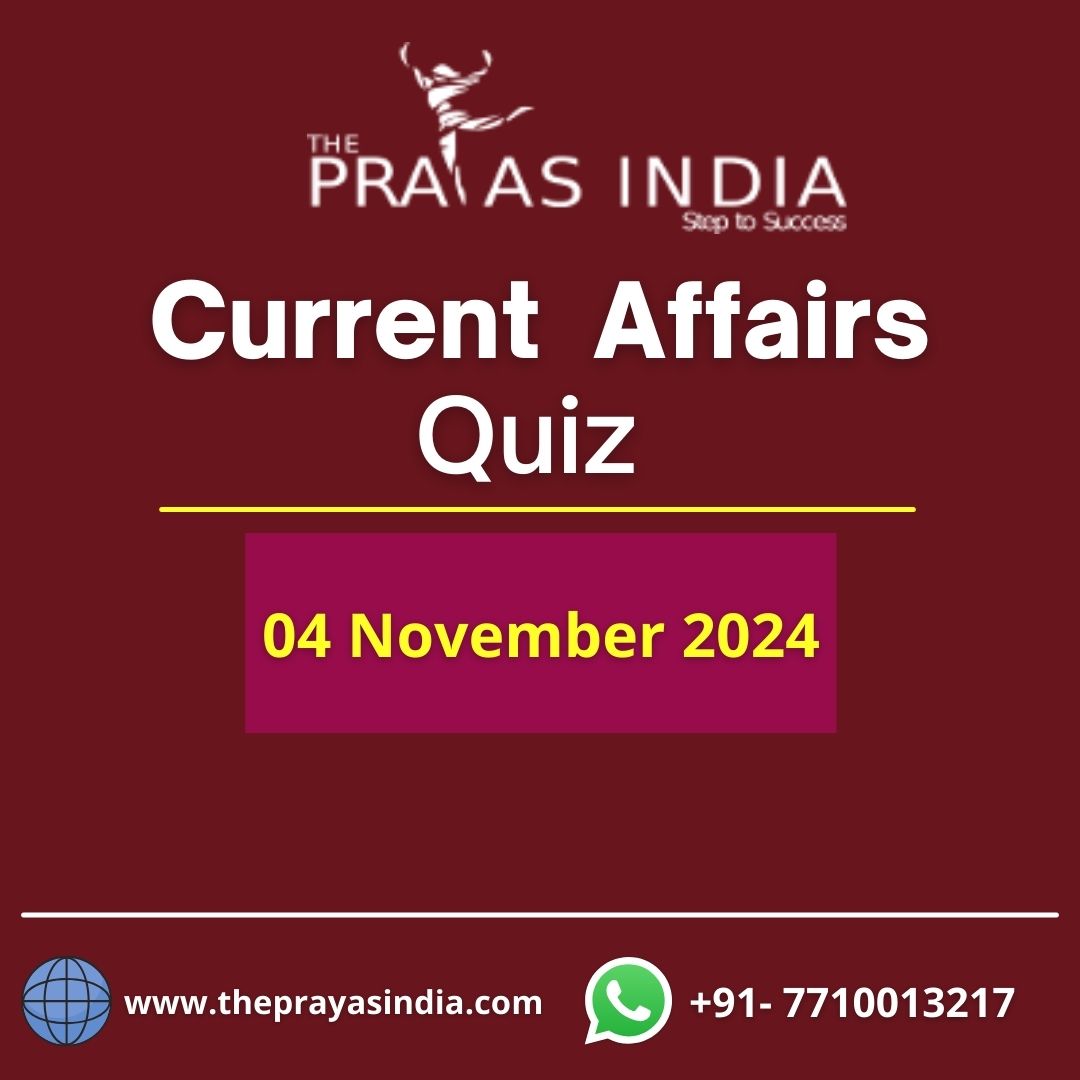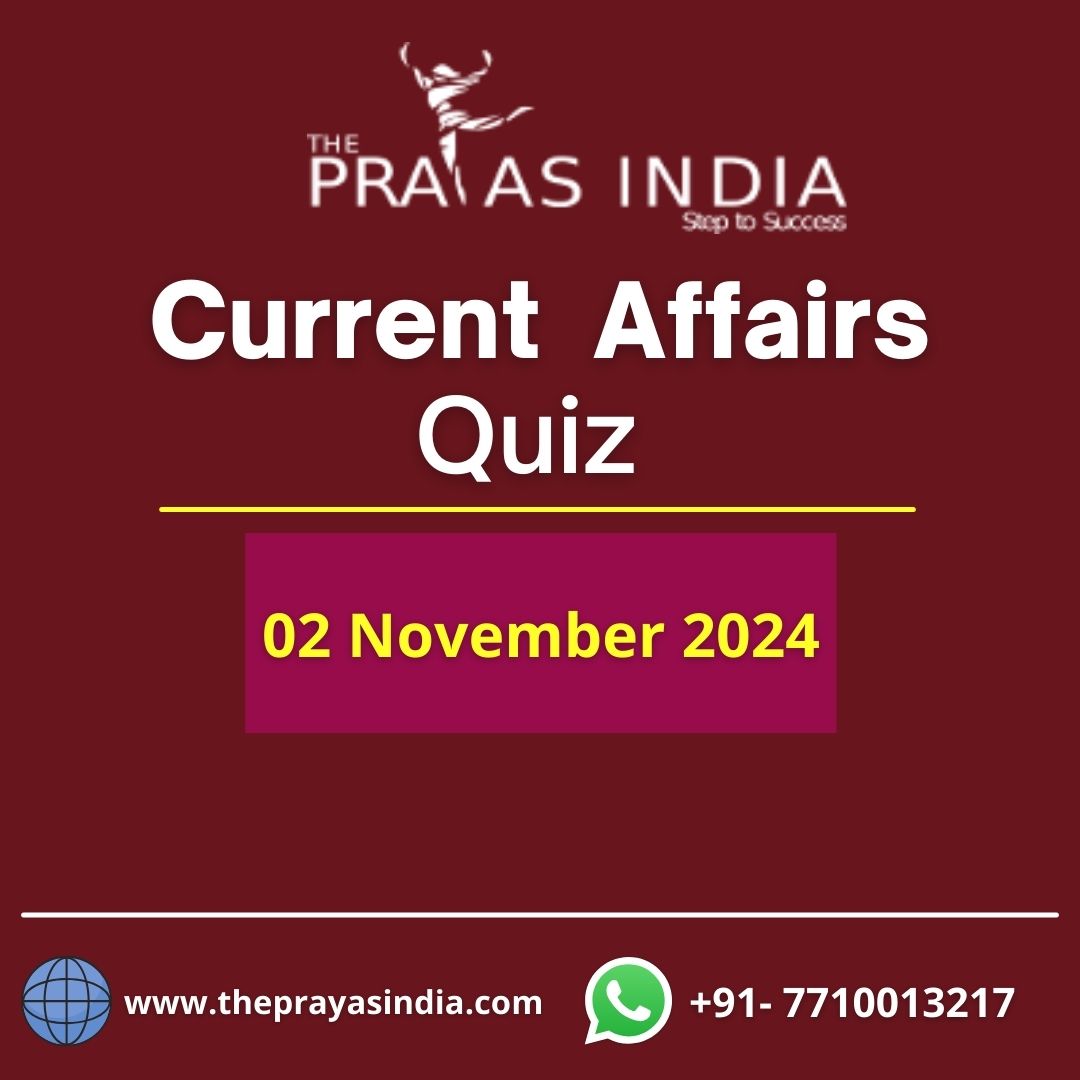Q1. Consider the following statements:
- Originally, the Constitution of India expressedly mentioned five privileges.
- The parliamentary privileges do not extend to the president who is also an integral part of the Parliament.
- Till now, the Parliament of India has not made any special law to exhaustively codify all the privileges.
How many of the above given statements are correct?
(a) Only one
(b) Only two
(c) Only three
(d) None
Ans: (b)
Explanation
- S2: The parliamentary privileges do not extend to the President who is also an integral part of the Parliament. Article 361 of the Constitution provides for privileges for the President.
- S1 and S3: Originally, the Constitution (Article 105) expressedly mentioned two privileges, that is, freedom of speech in Parliament and right of publication of its proceedings. With regard to other privileges, it provided that they were to be the same as those of the British House of Commons, its committees and its members on the date of its commencement (ie, 26 January, 1950), until defined by Parliament.
- The 44th Amendment Act of 1978 provided that the other privileges of each House of Parliament, its committees and its members are to be those which they had on the date of its commencement (ie, 20 June, 1979), until defined by Parliament. This means that the position with regard to other privileges remains same. In other words, the amendment has made only verbal changes by dropping a direct reference to the British House of Commons, without making any change in the implication of the provision.
- It should be noted here that the Parliament, till now, has not made any special law to exhaustively codify all the privileges. They are based on five sources, namely, 1. Constitutional provisions, 2. Various laws made by Parliament, 3. Rules of both the Houses, 4. Parliamentary conventions, and 5. Judicial interpretations.
Q2. Consider the following statements with reference to Parliamentary Privileges in India:
- Parliamentary privileges are defined in Article 105 of the Indian Constitution.
- The members of Parliament are exempted from any civil or criminal liability for any statement made or act done in the course of their duties.
- The privileges are claimed only when the person is a member of the house.
How many of the above given statements are correct?
(a) Only one
(b) Only two
(c) Only three
(d) None
Ans: (b)
Explanation:
- Parliamentary Privilegesare certain rights and immunities enjoyed by members of Parliament, individually and collectively, so that they can “effectively discharge their functions”.
- Article 105of the Constitution expressly mentions two privileges, that is, freedom of speech in Parliament and right of publication of its proceedings.
- The members of Parliament are exempted from any civil or criminal liability for any statement made or act done in the course of their duties.
- S3: The Constitution also extends the parliamentary privileges to those persons who are entitled to speak and take part in the proceedings of a House of Parliament or any of its committees. These include the Attorney General of India.
Q3. Consider the following statements regarding privilege motion:
- It can be moved only in the Lok Sabha.
- Any notice w.r.t privilege motion should be relating to an incident of recent occurrence.
- The Speaker is the only deciding authority on the privilege motion.
How many of the above given statements are correct?
(a) Only one
(b) Only two
(c) Only three
(d) None
Ans: (a)
Explanation:
- Parliamentary privileges are certain rights and immunities enjoyed by members of Parliament, individually and collectively, so that they can “effectively discharge their functions”. When any of these rights and immunities are disregarded, the offence is called a breach of privilege and is punishable under law of Parliament.
- S1: A notice is moved in the form of a motion by any member of either House against those being held guilty of breach of privilege.
- S2: S3: A member may, with the consent of the Speaker or the Chairperson, raise a question involving a breach of privilege either of a member or of the House or of a committee thereof. The rules however mandate that any notice should be relating to an incident of recent occurrence and should need the intervention of the House.
- The Speaker/RS chairperson is the first level of scrutiny of a privilege motion. The Speaker/Chair can decide on the privilege motion himself or herself or refer it to the privileges committee of Parliament.
Q4. The Panel of Vice-Chairpersons in Rajya Sabha is headed by the:
(a) Vice President
(b) Deputy Chairman
(c) Leader of the floor
(d) Speaker
Ans: (b)
Explanation:
- Context: In a historic move, the Rajya Sabha Chairman has formed an all-women panel of 13 Vice-Chairpersons in the Rajya Sabha in connection with the Women’s Reservation Bill, known as the Nari Shakti Vandan Adhiniyam 2023.
- Under the Rules of Rajya Sabha, the Chairman nominates from among the members a panel of VCs and any one of them can preside over the House in the absence of the Chairman/ Deputy Chairman.
- The Panel of Vice-Chairpersons in Rajya Sabha is headed by the Deputy Chairman. The members are nominated from the members of the Rajya Sabha by the Chairperson. Its role is to assist in passing bills and ensuring the effective functioning of the government.
- In case of the Chairman’s absence, the same duty is delegated and executed by the deputy chairman of the house.
Q5. ‘Basel III Accord’ or simply ‘Basel III’, often seen in the news, seeks to:
(a) develop national strategies for the conservation and sustainable use of biological diversity
(b) improve banking sector’s ability to deal with financial and economic stress and improve risk management
(c) reduce the greenhouse gas emissions but places a heavier burden on developed countries
(d) transfer technology from developed Countries to poor countries to enable them to replace the use of chlorofluorocarbons in refrigeration with harmless chemicals
Ans: (b)
Explanation: About BASEL-III Norms:
- Basel-III norms were adopted by financial regulators to improve the banking sector’s ability to absorb shocks arising from financial and economic stress.
- It was developed by the Basel Committee on Banking Supervision in the aftermath of the financial crisis of 2007-08. It mandates banks to maintain a CAR or Capital to Risk-weighted Assets (CRAR) of at least 8%.
- CRAR is a ratio that compares the value of a bank’s capital (or net worth) against the value of its various assets weighted according to risk.




